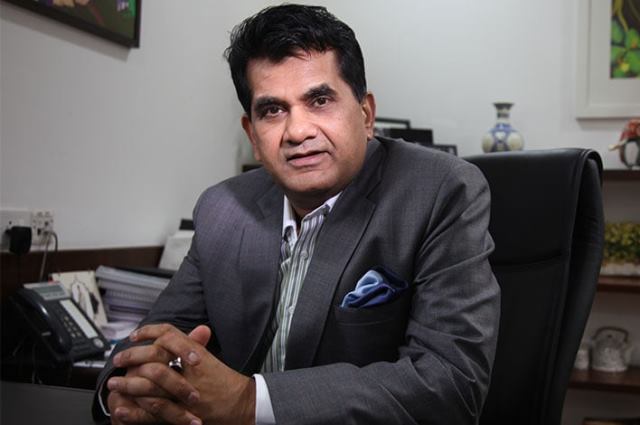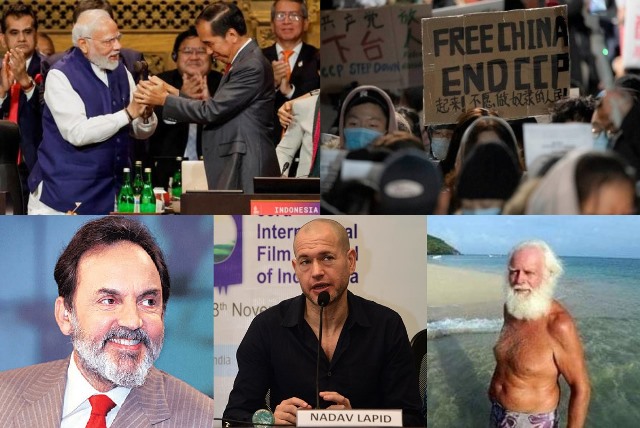As India helms the G20, what has the forum achieved?
Last week when India formally took over the presidency of the G20 (or Group of Twenty) one of the first symbolic things that were done was the lighting up of 100 government-protected heritage sites, including UNESCO-designated world heritage sites, across India. And India’s Prime Minister Narendra Modi, tweeted to his nearly 85 million followers: “India’s G-20 Presidency will work to further promote oneness, inspired by the theme of ‘One Earth, One Family, One Future.’”
The G20 is an inter-governmental forum comprising 19 countries from every continent and the European Union and its objective is to address global issues of critical importance such as climate change and its impact, financial stability, and sustainable development. The forum is convened at least once a year and its presidency revolves annually among its members. During the year that India will preside over the G20, it is expected that a series of as many as 200 meetings will be held at different locations, involving different levels of representatives from member-countries and other invited nations. This will culminate next year with a marquee summit in Delhi.
Yet, the G20 has come under strong criticism for not achieving meaningful objectives. Indeed, in its 23-year history, there is little to show in terms of accomplishments. For instance, the recently concluded summit last month, which was hosted by Indonesia in Bali, came under severe criticism that it had failed to achieve anything of significance on climate change; that it had not provided the leadership for a global economic recovery after the Covid pandemic; and that its members were hopelessly divided in their opinion and stance on most major issues.
In 1999, when the G20 came into existence (evolving out of the erstwhile G7), its main objective was to achieve global financial stability at a time when the world was in the process of recovering from a financial crisis. The crisis originated in the late 1990s in Asian markets and spread all over the world. G7 members then realised that the crisis of that magnitude could not be tackled without expanding the forum to include a much wider range of nations and the G20 was formed.
Initially the forum comprised finance ministers and central bank governors of the 20-member countries. But later, the heads of state were included as the prime representatives. That happened 10 years later when a bigger financial crisis hit the world.
Theoretically, the G20 has a massive heft: collectively, the G20 members account for 80% of the global domestic product (GDP); and account for an estimated 75% of global trade. Besides, the members together represent 60% of the world’s population. That makes for a huge collective force but has that force played out in terms of the impact that the G20 has had?
The G20 works on two track every year in the run-up to the summit: a finance track where mainly finance-related issues are handled by finance mińisters and central bank governors of member countries, and a sherpa track where representatives of the heads of state tackle a wider range of issues that go beyond finance and economics. Meetings involving these two tracks are held throughout the year and, although the summit may be the gala meeting of the forum, it is these meetings where the real work often happens.
“Real work” should probably be viewed as an euphemism for “consensus” on critical issues among the forum’s members. But unfortunately, it is not an easy task to achieve such consensus. Lack of consensus has made the G20 not as effective as it had been conceived to be. The US, for instance, has been according less priority to the G20. Then there is the question of not including as many as 170 other countries in the world, including populous ones such as several African countries.
With the world facing another wave of post-Covid economic slump; and burning issues of climate change-related crises, the importance of the G20 cannot be overemphasised. However, even as India takes over its presidency, questions remain about whether the workings of the forum, which is in reality an informal collective, can be of any real consequence to the world as we grapple with growing problems.
Protests in China lead to easing of restrictions
The waves of protests and clashes that marked cities across China over the past weeks were a reaction to the Chinese government’s stentorian action against people’s freedom of movement and rights after another wave of the Covid virus spread across the large country. Lockdowns were imposed across many cities, including measures such as restricting workers from leaving factories or going home. People rose up in protests and videos that came out of the country showed clashes, beatings and violence as police and security forces clashed with protestors.
The events led to worldwide protests in solidarity with the Chinese people and there was significant pressure on Xi Jingping’s government to ease up on the restrictions.
Last week after days of protests, the Chinese government suddenly announced a lifting of the restrictions in some cities, including Guangzhou and Chongqing. People were allowed to move more freely and inter-personal contact was allowed.
The Chinese government’s hard crackdown on citizens and their rights evoked memories of Tiananmen Square where in 1989 violent massacres took place when the government tried to quell a popular national movement for democracy. This time, though, the provocation was the resurgence of the Covid virus, which in a populous country such as China can spread quickly and have major consequences for people and the economy. However, the Chinese action to prevent its spread and contain the virus was quite clearly disproportionate and, clearly, anti-people.
NDTV takeover: the end of an era of independent journalism
NDTV, founded by Prannoy and Radhika Roy in 1984, has always been considered an Indian media company of iconic stature. It has always promoted free, fearless, and objective journalism in a scenario where other major news organisations have failed to adhere to such principles and values.
NDTV has stood out even more since 2014 after the BJP-led Modi regime came to power and resulted in a rapid deterioration in the quality of mainstream journalism in India. Almost universally mainstream media groups in India have sought to toe the government’s line and, with the exception of a handful of organisations, few have pursued objective criticism of the government’s policies or investigative journalism to unearth the truth relating to authorities. The press and media are expected to hold a mirror to authority; in reality, in recent years, mainstream media hold a mirror to themselves in order to ensure that they conform to what the authorities expect them to be.
In such an environment, NDTV was an outlier. It earned a reputation of resisting pressure from the authorities and blazing an independent trail. That trail will probably now sputter and peter out. This is because India’s (and Asia’s) richest man, who is also the world’s third richest with a net worth of US$138.1 billion, Gautam Adani, is buying NDTV. That could well be the end of the last bastion of genuinely free mainstream media in India.
Adani’s group has interests in port management, electric power generation and transmission, renewable energy, mining, airport operations, natural gas, food processing and infrastructure with estimated revenues in 2022-23 of $90 billion. Adani is also perceived to be close to the Modi government and, in particular, to the Indian Prime Minister, Narendra Modi.
Last week, NDTV founders, the Roys, resigned and withdrew from the company and media watchers speculated that the company, its TV news channels and digital publications could face restrictions on what they could publish in future after the ownership changed.
In the past, the Roys have been under severe pressure from the government–including investigations into allegations of money laundering and tax avoidance– that has been viewed as intimidating tactics by those in power because of the company’s independent and, often critical, views.
With Adani taking over, NDTV’s stance is expected to change. Indian mainstream media’s last man standing will probably sadly have to bite the dust.
Israeli filmmaker creates a flutter in India
When Nadav Lapid, an Israeli filmmaker who headed the jury at a film festival in the Indian state of Goa, criticised film, The Kashmir Files, which depicts Hindu exodus from Kashmir in the late 1980s, it led to an uproar in India. Lapid had accused the film of being a propaganda film that should not have been shown at the festival.
This touched a raw nerve. The film has been controversial but the ruling regime and its supporters have praised it ever since it was released. Even Prime Minister Modi has lauded the film although many feel that, given its inter-communal focus, Kashmir Files could be divisive.
Meanwhile, even as the Israeli filmmaker has been criticised for his comments, his country’s ambassador to India, Bhutan, and Sri Lanka, Naor Gilon, apologised for it by tweeting: “As a human being I feel ashamed and want to apologise to our hosts for the bad manner in which we repaid them for their generosity and friendship.”
Modern-day Robinson Crusoe
Several years ago, a British citizen, Bernard Grimshaw bought a tiny unexplored island in the Seychelles for $13,000 where he lived as a modern-day Robinson Crusoe. Grimshaw was under 40 when he quit his job as a journalist and bought the island where he lived in near isolation.
Grimshaw also found a companion, René Lafortin, who came to the island sometimes and helped Grimshaw.
He and his companion built the island from scratch: planting saplings from neighbouring islands, encouraging birds and other species of fauna to inhabit it, and so on. Today, there are 2000 different bird species as also a rare breed of turtles. In fact, the island, named Moyenne, follows all the tenets of conservation and ecological balance.
Grimshaw was, on a couple of occasions, also offered millions of dollars by a Saudi prince who wanted to buy the island, but he didn’t agree. Today, Moyenne is a tiny eco-friendly, well-preserved natural sanctuary. Grimshaw died in 2012. But his island is now a national park that is protected by law.
Read More: http://13.232.95.176/


